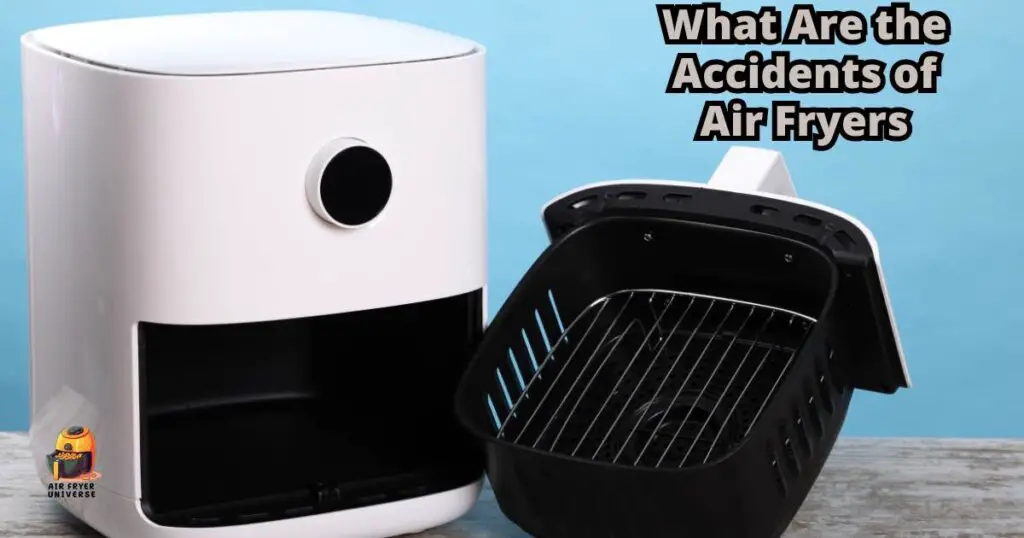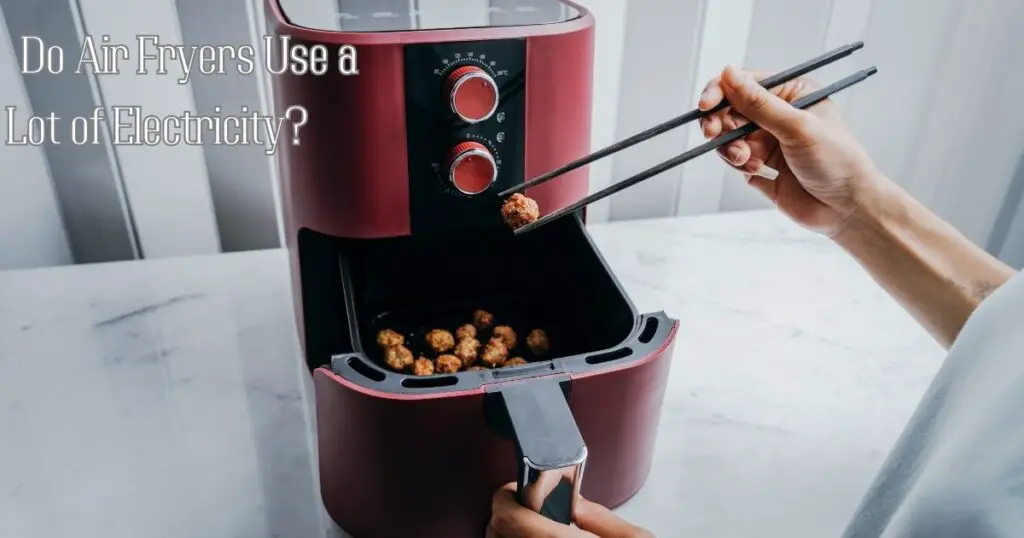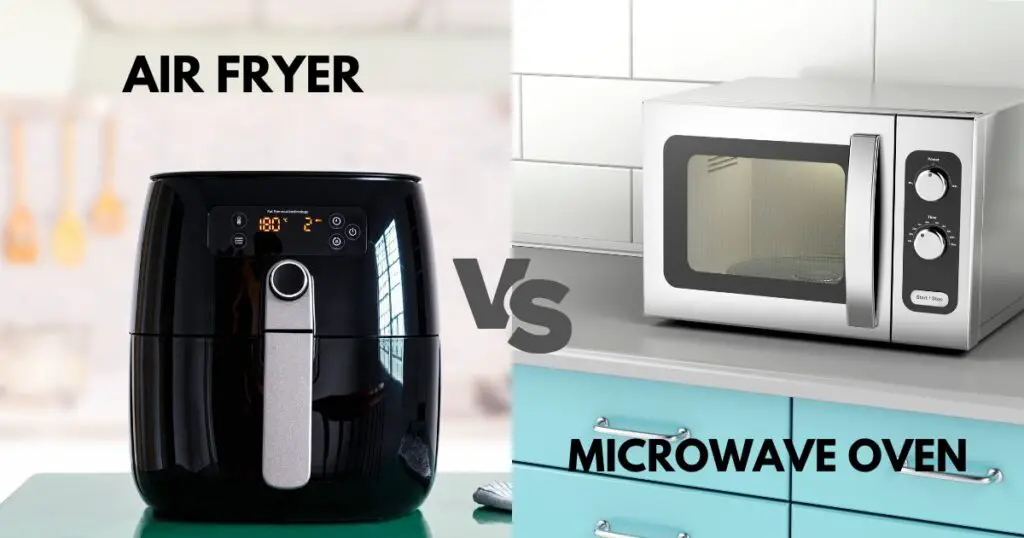Table Of Contents
Air fryers are generally safe kitchen appliances, but accidents can occur if not used properly. Common issues include burns from touching hot surfaces or steam, especially when opening the fryer’s basket mid-cooking. Overfilling the basket can cause uneven cooking or even fires due to food spilling onto the heating element.
Additionally, using inappropriate cookware or utensils might lead to scratches or damage. Following the manufacturer’s instructions is crucial, avoiding overcrowding the basket and using heat-resistant tools. Regular maintenance and careful operation significantly reduce the risk of accidents when using air fryers.

What Are the Accidents of Air Fryers?
Here are some of the air fryer accidents that can happen due to some lack of awareness:
1. Burns and Scalds
Accidentally touching hot surfaces or steam from the air fryer can lead to burns and scalds. To prevent injuries, it’s essential to exercise caution and always use protective gear like oven mitts or tongs when handling the appliance. Safety measures like these are crucial to avoid burns and ensure safe air fryer use.
2. Fire Hazards
Fire hazards in air fryers can arise from excessive heat or oil splatters reaching the heating element, potentially causing fires. Preventive measures include maintaining cleanliness and avoiding overfilling. Regular cleaning routines and ensuring the fryer isn’t overloaded are essential to safeguard against fire risks, providing a safer cooking environment.
3. Overheating
Overheating is a significant concern in appliances like air fryers, where excess heat can lead to accidents. It may cause burns, fires, or damage to the device. Regular maintenance, proper ventilation, and following manufacturer guidelines are vital to prevent overheating. Timely repairs and attentive usage ensure safe and efficient appliance operation.
4. Uneven Cooking
Uneven cooking in air fryers occurs when the appliance is overloaded, leading to undercooked portions. Proper spacing between food items is crucial for even cooking. Overcrowding hampers air circulation, causing some parts to remain uncooked. Ensuring adequate space between objects in the fryer basket guarantees that the food cooks uniformly, resulting in better taste and safety.
5. Electrical Issues
Electrical issues in air fryers, such as damaged wires or cords, pose a risk of electric shocks. Regularly inspecting cords for signs of wear and tear is essential. Timely checks and addressing any damage prevent potential electrical hazards, ensuring the safe use of the appliance and reducing the risk of accidents or injuries.
6. Smoke and Odor
Smoke and unpleasant odors can arise in air fryers due to leftover food bits, which can burn and create a bad smell. Regular cleaning is essential to prevent this issue. Ensuring the fryer is cleaned thoroughly after each use eliminates residues, maintains a fresh cooking environment, and avoids unwanted smells and smoke during the cooking process.
7. Damage to Surfaces
Hot air fryers can harm kitchen surfaces if not placed on heat-resistant materials. It’s essential to position the fryer on appropriate heat-resistant surfaces, such as heat-resistant mats or countertops, to prevent damage. These materials act as a protective barrier, preserving kitchen surfaces and ensuring they remain undamaged during and after air frying sessions.
8. Oil Spills
Oil spills from air fryers can result from tipping the appliance or careless handling, causing burns or slippery floors. Handling the fryer with care is crucial, ensuring it remains stable and secure during use. Being cautious prevents accidents, maintains a safe environment, and minimizes the risk of burns or slip-related injuries.
9. Food Contamination
Inadequate cleaning of air fryers can result in food contamination. Proper cleaning is crucial to maintain safe and healthy cooking conditions. Regularly cleaning all parts of the fryer, especially after each use, prevents bacteria or food residue buildup, ensuring that the cooked food remains safe for consumption and free from contamination risks.
10. Child Safety
Child safety is paramount with air fryers, as curious kids might accidentally touch hot surfaces or tip the appliance, leading to injuries. It’s crucial to keep children away from the fryer and educate them about its potential dangers to prevent accidents. Supervision and awareness are vital to ensuring a safe environment for children around kitchen appliances.
11. Inadequate Ventilation
Insufficient ventilation in kitchens can trap heat and odors, making the environment uncomfortable. Adequate ventilation is vital to prevent overheating problems and maintain a fresh atmosphere. Proper ventilation systems, like exhaust fans or open windows, dissipate heat and cooking odors, ensuring a more pleasant and safe cooking environment for everyone in the household.
How to Avoid these Air Fryer Accidents?
Here are some steps to avoid these air fryer accidents:
Read the Manual
Reading the manual is paramount when using an air fryer. It provides essential instructions, safety precautions, and operational guidelines specific to the appliance. Understanding the manual ensures correct usage, preventing accidents, and optimizing the air fryer’s performance. It is the first step toward safely and effectively utilizing this kitchen appliance.
Place on a Stable Surface
Ensure the air fryer sits on a flat, heat-resistant surface. This prevents accidental tipping, ensuring safety during operation. Placing it on a secure platform guarantees the appliance remains steady, minimizing the risk of spills, burns, or other accidents. A stable base is fundamental to safe and efficient air fryer use.
Avoid Overloading
Avoid overloading the fryer basket to ensure effective cooking. Leaving ample space allows proper air circulation, providing even cooking and crispy results. Overcrowding hampers the airflow, leading to unevenly cooked food. By maintaining a balanced load, you optimize the air fryer’s performance, enhancing the taste and texture of your dishes.
Prevent Water Contact
Prevent water contact with the air fryer and cord to avoid electric shocks. Keep the appliance and its electrical components always dry, avoiding spills or drips. Water and electricity do not mix well; maintaining a dry environment ensures your safety and the proper functioning of the air fryer, preventing potential hazards.
Use Proper Utensils
Always use appropriate utensils like oven mitts or tongs when handling hot components of the air fryer. This prevents burns and scalds, ensuring your safety. Avoid metal utensils that could damage the non-stick coating, preserving the fryer’s integrity. Using the right tools safeguards you and the appliance, ensuring a smooth and secure cooking experience.
Regular Cleaning
Regular cleaning is essential for the air fryer. After each use, clean all parts to remove food residue. Most air fryers have dishwasher-safe components, making cleaning convenient. Ensuring a thorough clean maintains hygiene and enhances the appliance’s longevity, providing safe and delicious meals every time you use it.
Check Cord Condition
Regularly inspect the air fryer’s power cord for wear or damage. If you notice exposed wires or fraying, replace the cord immediately. A damaged cord poses a significant safety risk, including the potential for electric shocks or even fires. Timely replacement ensures safe usage and prevents hazardous situations in the kitchen.
Avoid Overheating
Prevent overheating by avoiding proximity to heat-generating appliances. Placing the air fryer away from sources of heat ensures optimal performance. Adequate ventilation is crucial; it allows the appliance to function efficiently without becoming too hot. Proper placement and ventilation prevent overheating issues, maintain safety, and extend the air fryer’s lifespan.
Keep Children Away
Ensure children and pets are kept safe from the operating air fryer to prevent burns or accidents. The hot surfaces and potential spills pose risks. Supervision is crucial; educating children about the appliance’s dangers enhances their understanding, ensuring a secure cooking environment for adults and little ones.
Ventilation
Position the air fryer in a well-ventilated space to effectively disperse heat and cooking odors. Adequate ventilation prevents smoke accumulation, ensuring a comfortable kitchen environment. Proper airflow maintains air quality and prevents overheating, enhancing the air fryer’s performance and providing safe, odor-free cooking experiences.
Quality Matters
Opt for a high-quality air fryer from a reputable brand. These models often boast superior safety features and durability. Investing in a trusted brand ensures longevity and enhanced safety during usage. Quality air fryers offer reliable performance, making them a worthwhile and secure addition to your kitchen appliances.
Oil Caution
Be careful with oil in the air fryer. Please don’t use too much or fill it up too high. If there’s extra oil, clean it up. Too much oil can cause smoke and even fires. Using just enough keeps your cooking safe and your kitchen clean and hazard-free.
Read More: Common Reasons for Air Fryer Touch Screen Not Working
Air Fryer Vs Pressure Cooker
| Aspect | Air Fryer | Pressure Cooker |
| Cooking Method | It uses hot air to cook food, similar to a small convection oven. | Cooks by locking in moisture, building steam, and boiling food. |
| Speed | Cooks relatively quickly due to hot air circulation. | Cooks rapidly due to steam and pressure, speeding up cooking. |
| Texture | It offers a crispy texture, ideal for fried and baked foods. | Makes dishes tender and moist, especially soups and stews. |
| Versatility | Bakes, fries, roasts, dehydrates. | Great for soups, stews, grains, |
| Healthier | Uses less oil and healthier frying. | It keeps nutrients, and quick cooking preserves vitamins in food. |
| Cleaning | Easy to clean; most parts are dishwasher-safe. | Some parts can be challenging to clean, especially gaskets. |
| Energy Usage | Energy-efficient; uses less power compared to ovens. | Requires less cooking time but uses more energy during use. |
| Capacity | Typically 2-6 quarts. | Typically 6-8 quarts. |
| Ease of Use | Simple operation with preset buttons for various foods. | It requires some learning but offers versatile cooking options. |
What I Wish I Knew Before I Get an Air Fryer?
Before getting an air fryer, it’s helpful to know a few key things:
Size and Space
When choosing an air fryer, think about your kitchen’s size. More extensive models provide more cooking space but need ample counter space. Assess your kitchen layout, ensuring the chosen air fryer fits comfortably. Balancing cooking needs with available space ensures practicality and convenience in your kitchen setup, enhancing your overall cooking experience.
Versatility
Air fryers offer versatility beyond frying; they can bake, roast, and dehydrate. Exploring diverse recipes maximizes your appliance’s potential. The options are vast, from crispy fries to tender roasts and dehydrated fruits. Embracing this versatility allows you to create a wide array of dishes, making your air fryer a multifunctional kitchen ally.
Learning Curve
Using an air fryer takes time to learn the correct cooking times and temperatures. It’s like learning a new skill. You get better by trying different recipes and adjusting the settings. So, don’t worry if your first few tries aren’t perfect. With practice, you’ll cook great meals in your air fryer.
Regular Cleaning
Keeping your air fryer clean is essential. Leftover food bits can impact the taste of future dishes and even create safety hazards. Most air fryers have parts you can remove and wash in the dishwasher, making cleaning simple. Regular maintenance ensures your meals are delicious and safe to eat.
Noise Level
Air fryers can be noisy because of the fan. It’s something to consider, especially if you live in a small space. The noise might be bothersome in close quarters, so it’s good to know this factor when deciding where to place your air fryer in your home.
Quality Matters
Choosing a high-quality air fryer is crucial. Cheaper models might not last long or provide consistent results. Purchasing a reputed brand ensures improved performance and longevity. While cost-effective options exist, investing a little more upfront often pays off in terms of longevity and the quality of your cooking experience.
Budget
When buying an air fryer, consider your budget for the appliance and additional accessories like racks or pans. These extras enhance your cooking experience. Planning your budget thoughtfully ensures you have everything you need, making your air-frying adventures more versatile and enjoyable without unexpected costs.
Warranty
Before purchasing, review the air fryer’s warranty and return policy. A solid security safeguards you against malfunctions or defects, offering peace of mind. Understanding the terms and duration of the warranty ensures you have reliable customer support in case issues arise, making your purchase secure and worry-free.
Meal Planning
Consider your favorite foods before getting an air fryer. It excels at cooking crispy delights like fries, chicken wings, and snacks. If these are your go-to meals, an air fryer is a valuable addition, ensuring you can enjoy your favorites with less oil and a healthier touch, making meal preparation more straightforward and enjoyable.
Healthy Cooking
Air fryers encourage healthier cooking with less oil but can’t make everything super healthy. Good ingredients are crucial. While they cut down on oil, the nutritional value of what you cook matters. So, while air fryers make meals healthier, choosing nutritious ingredients is vital for overall health benefits.
FAQs
Is Air Fryer Safe for Daily Use?
Yes, air fryers are safe for daily use. Just follow the instructions and safety tips from the manual. Don’t overload it; clean it properly, and you can enjoy cooking with it daily. It’s a handy and safe way to make your favorite meals.
What Are 3 Kitchen Safety Risks?
There are three main safety risks in the kitchen: cuts from knives, burns from hot things, and injuries from machines. Also, be careful not to slip or trip. To stay safe, carefully handle knives and desirable things, and keep the kitchen tidy. Being careful helps prevent accidents in the kitchen.
Final Verdict
Air fryers are handy kitchen gadgets, but accidents can still happen. Burns and uneven cooking are common issues. To stay safe, start by reading the manual carefully. Always place the fryer on a flat surface so it doesn’t tip over.
Don’t overcrowd the basket, and keep it clean after each use. Use oven mitts to handle hot parts, and teach kids about its safety. Good ventilation is essential, too. Following these simple steps ensures accident-free cooking. For more detailed tips and tricks, keep reading. Stay safe, and happy cooking!
You May Also Like to Read:







